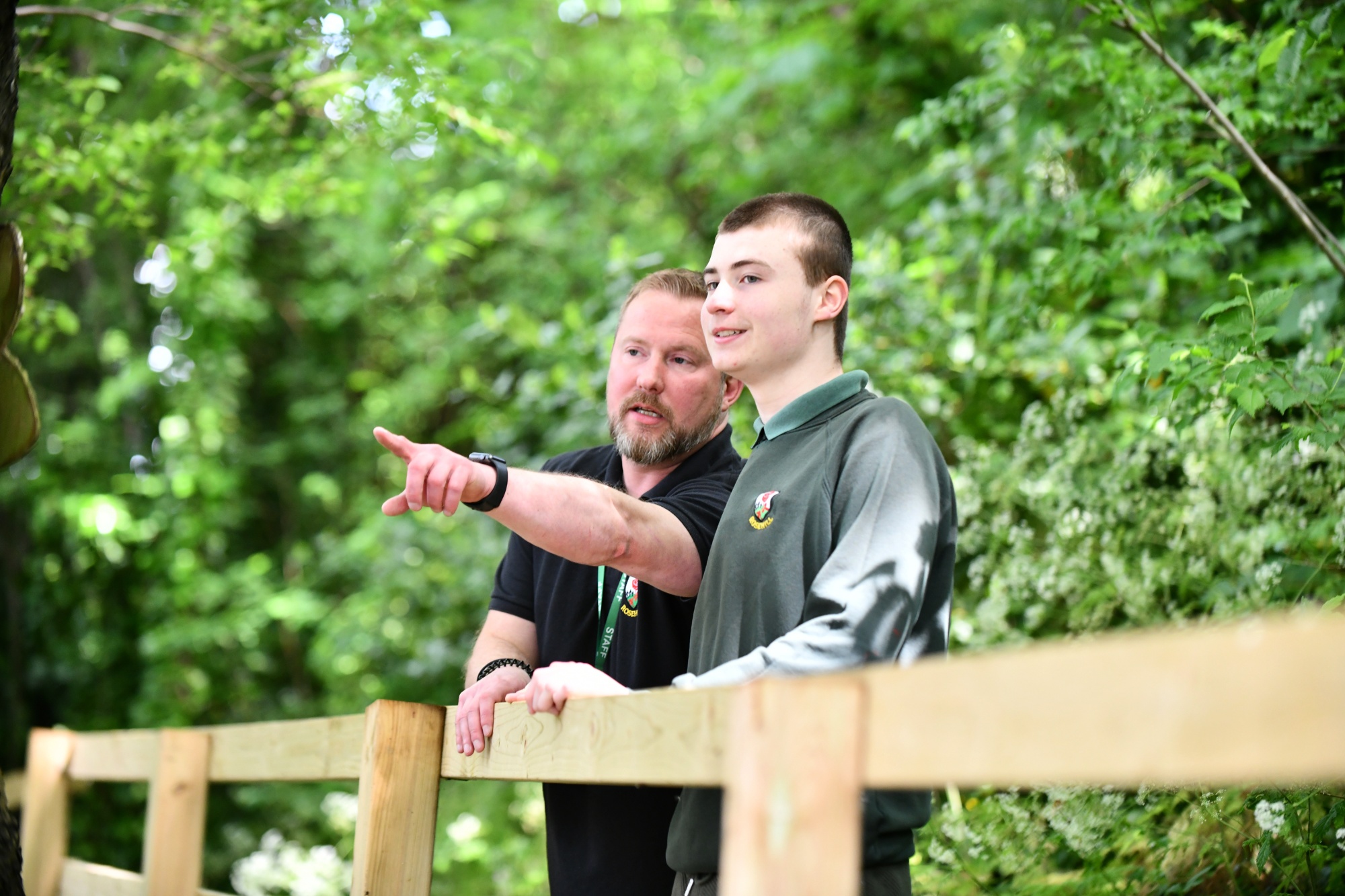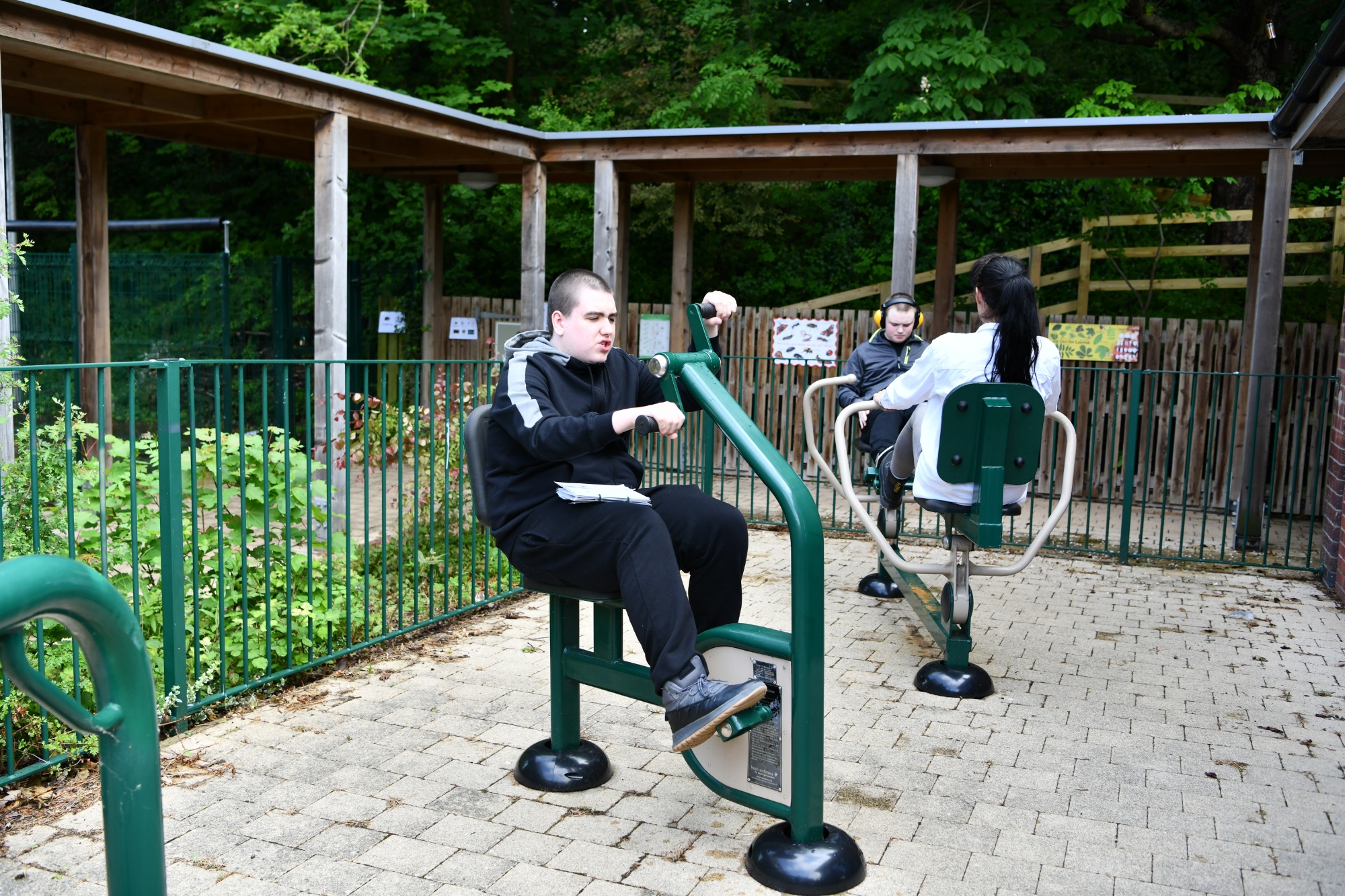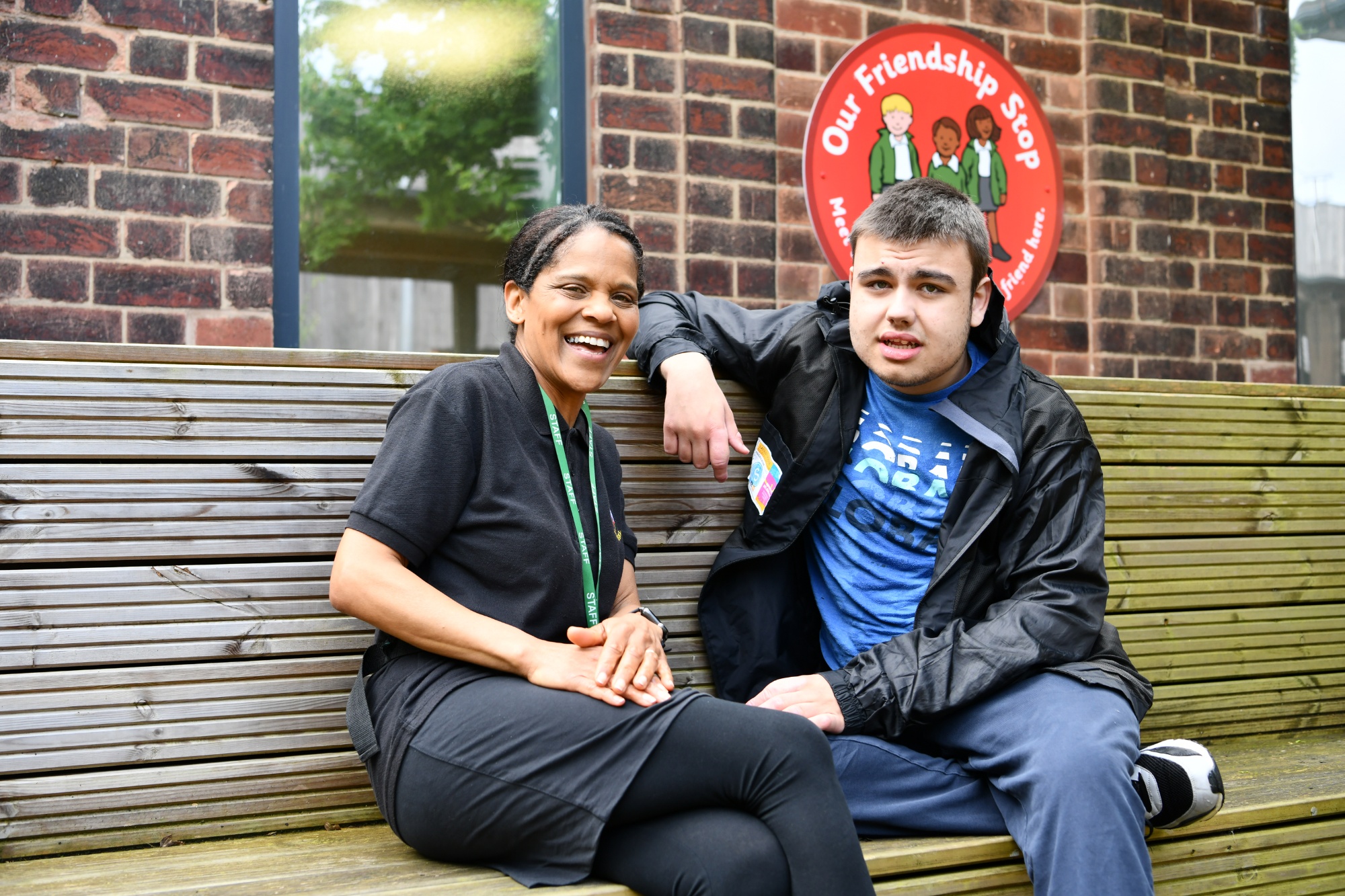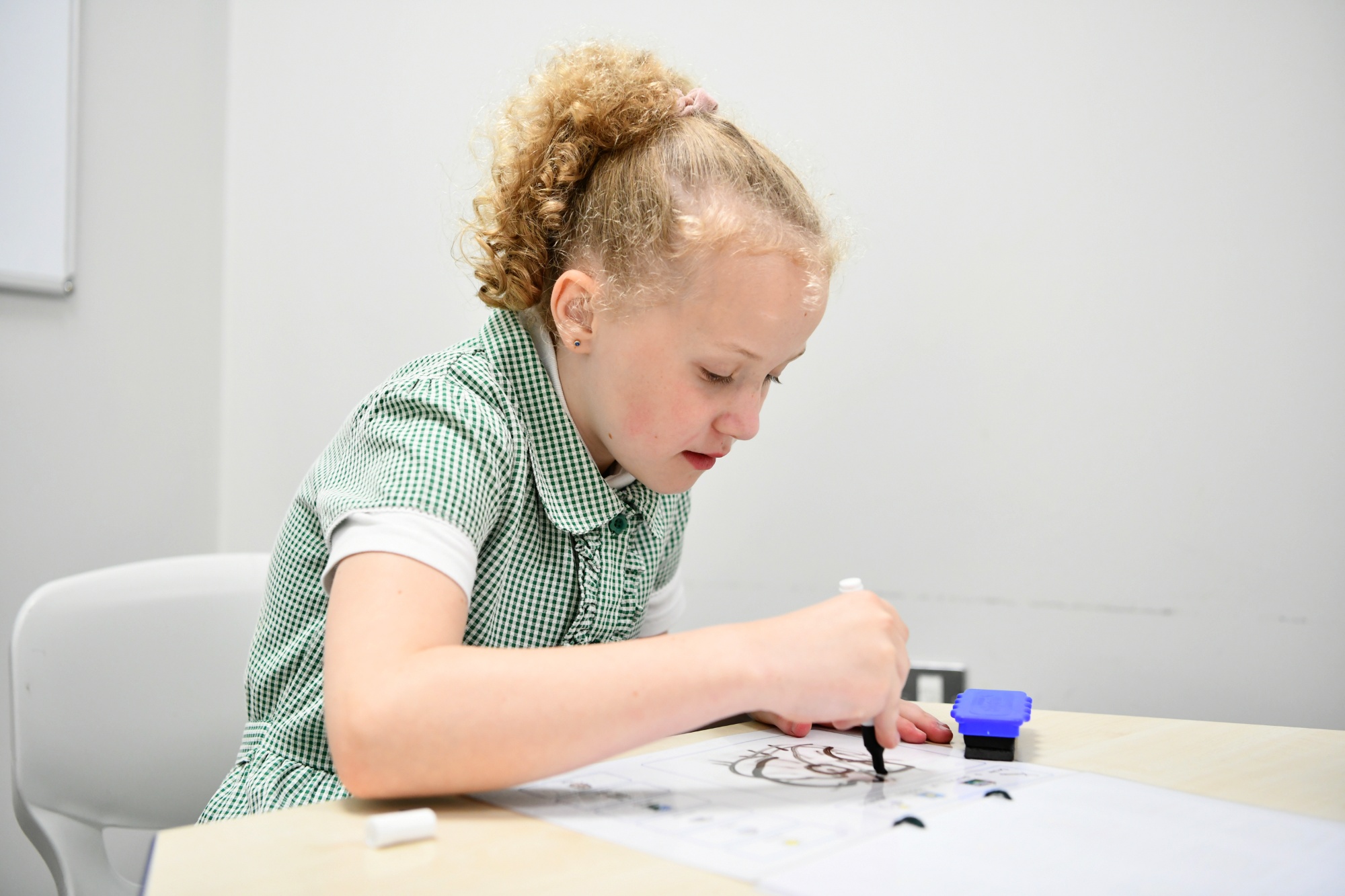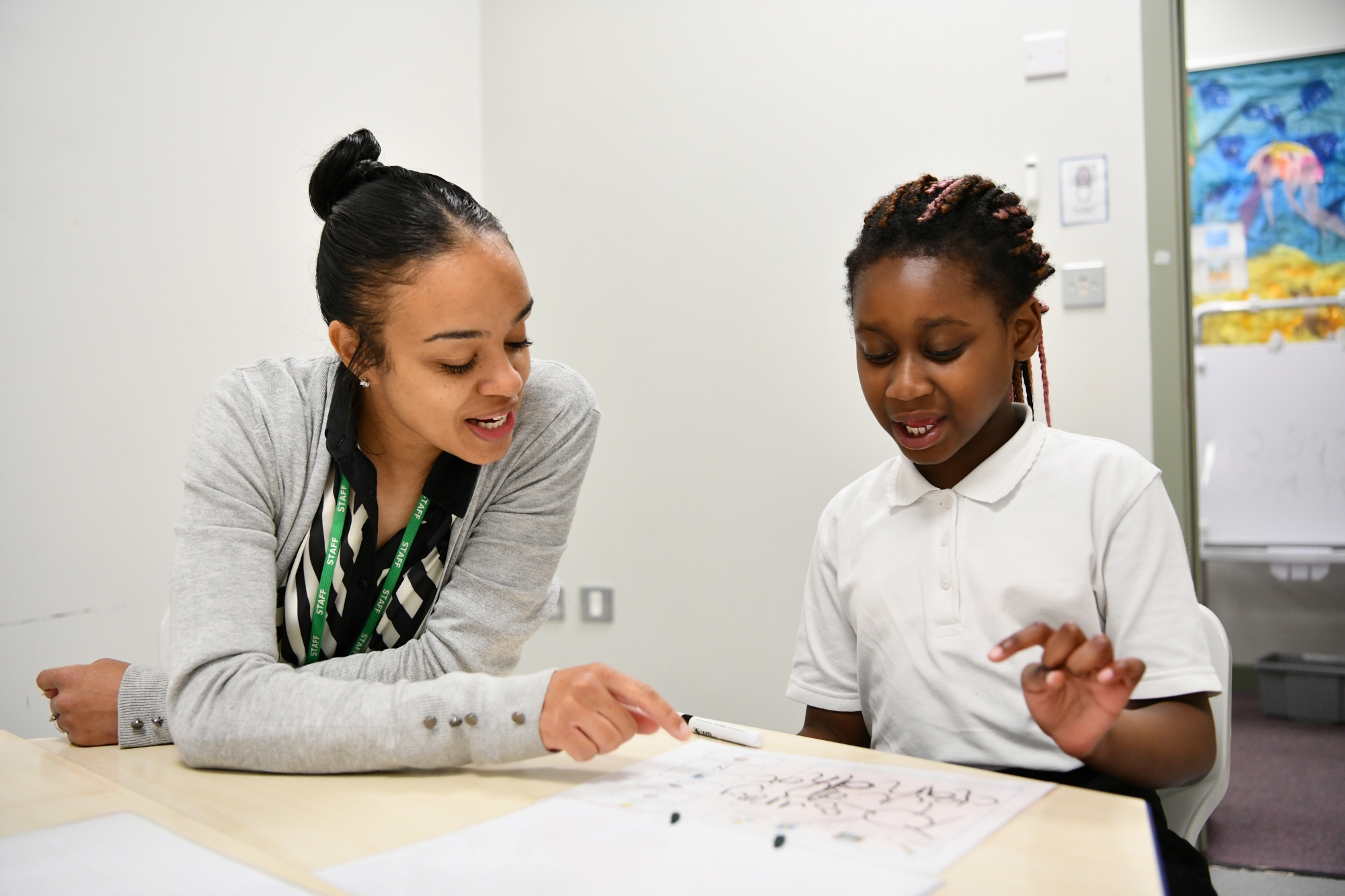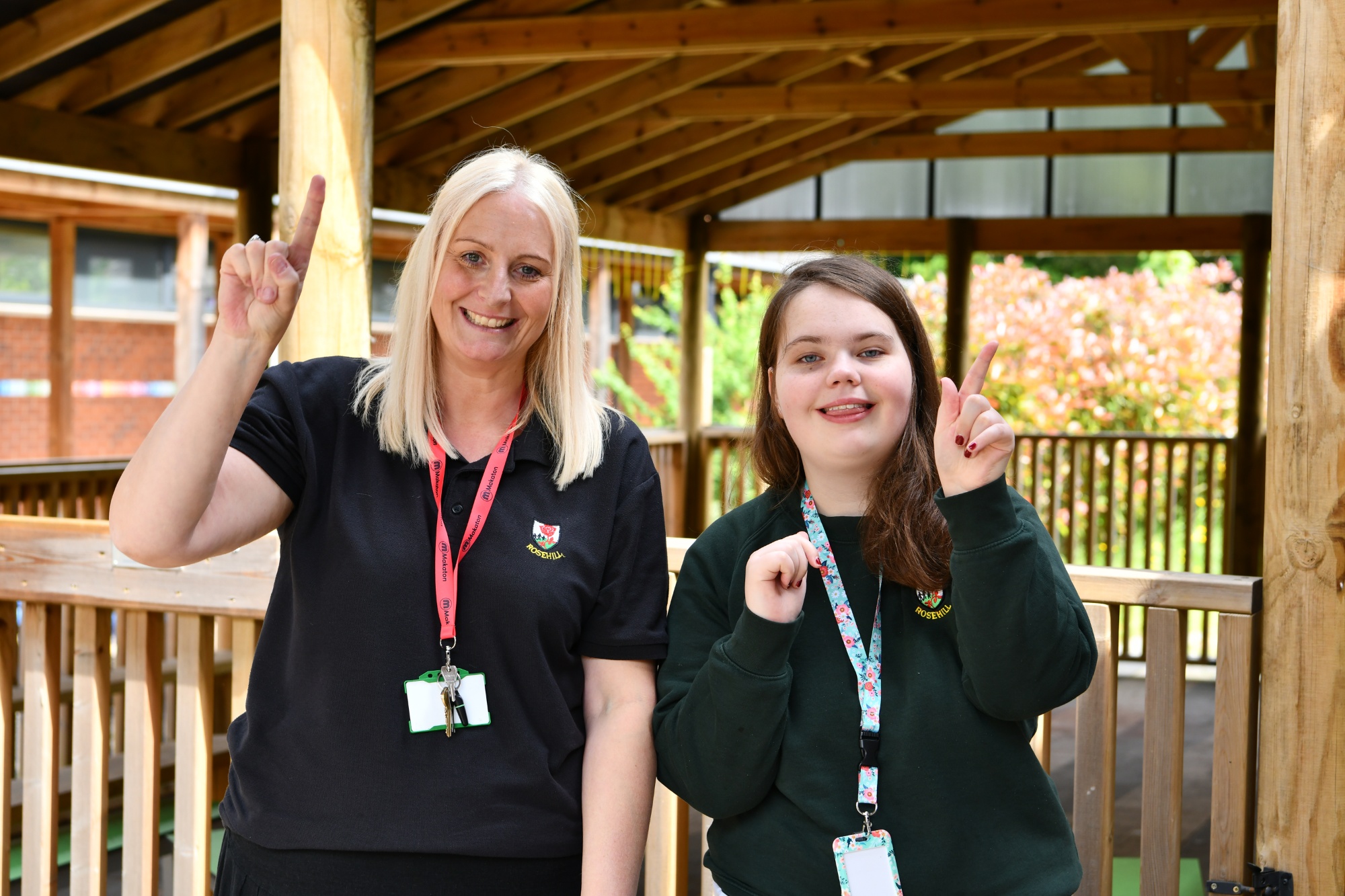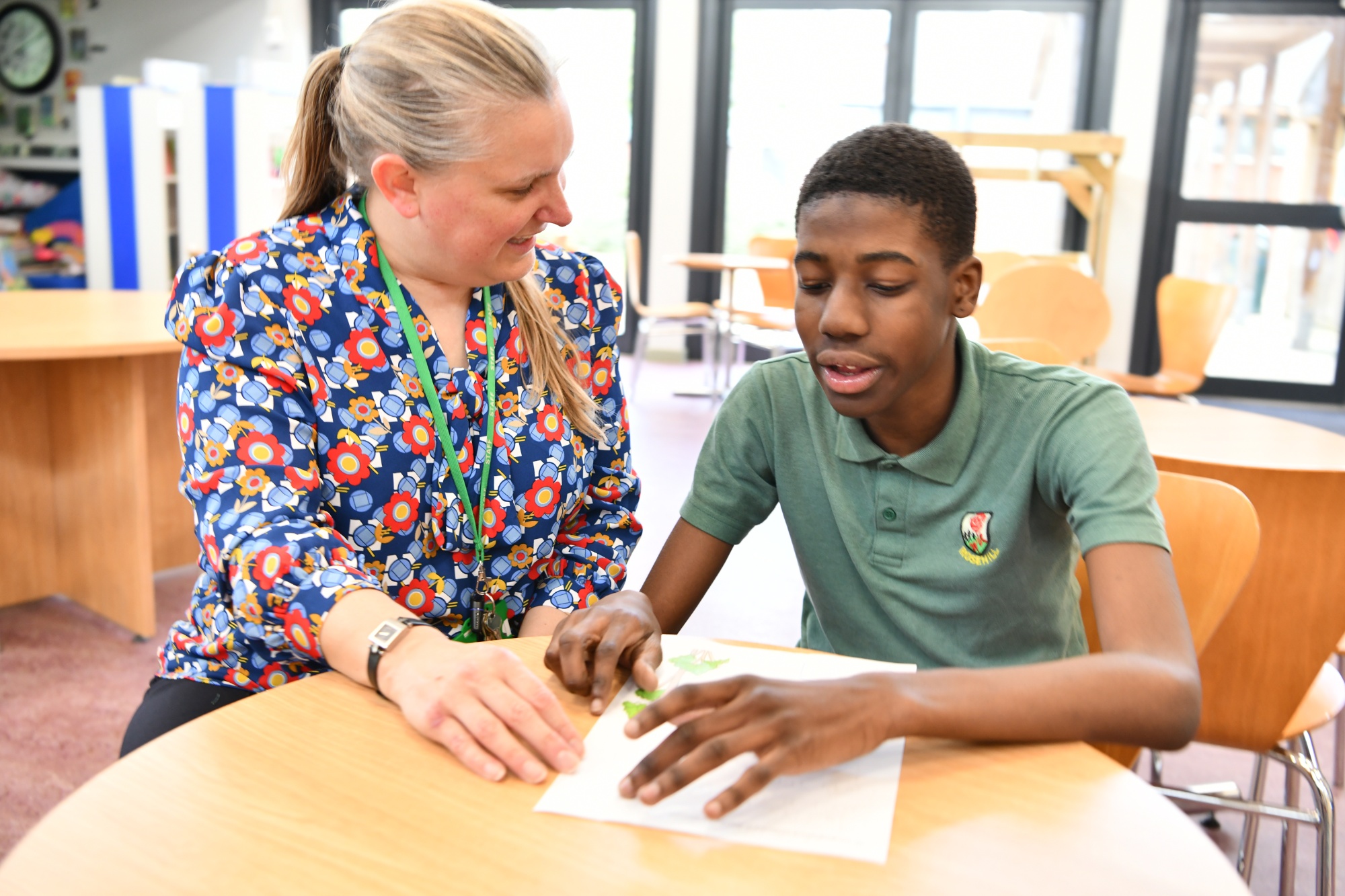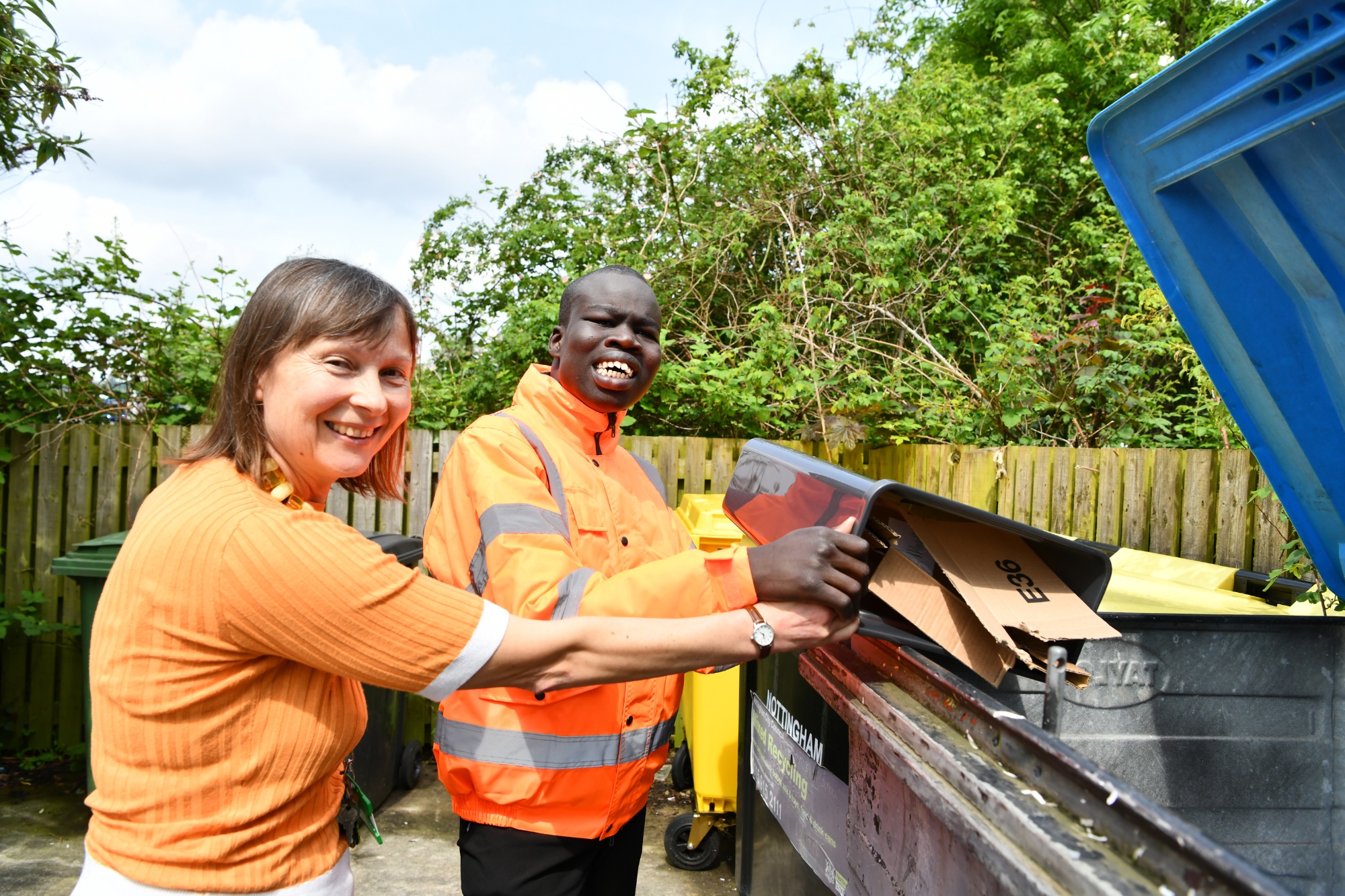
Governance
Governors Impact Statement
The governing body at Rosehill School works to meet the requirements set nationally by the government for governing bodies. The role is a fundamental part of the leadership of the school and, as such, we aim to make our school the very best it can be for the benefit of all of our pupils. We constantly strive to raise standards in accordance with Rosehill’s vision statement.
The government requires the governing body to be a dynamic group of highly skilled individuals who focus on supporting the Headteacher and all the staff to shape the strategic direction of the school.
We focus on three core functions:
- Ensuring clarity of vision, ethos and strategic direction
- Holding the Headteacher and senior leaders to account for the educational performance of the school and its pupils, and the effective and efficient performance management of staff
- Overseeing the financial performance of the school and making sure the money is spent well.
In this statement we aim to outline some of the impact we have on the school through our role of challenge and support.
Rosehill was last inspected by Ofsted on 10 and 11 October 2023, and we received a very positive appraisal, highlighting the school as being Outstanding. You can find further information regarding our latest Ofsted Inspection by following this link. Ofsted Inspection link
The report praised the polite and friendly pupils, who treat each other respectfully, and all the adults in school who strive to enable pupils to develop the knowledge and skills that will help them to be as independent as possible as they go into adulthood. It also stated that governors offer leaders support and challenge in equal measure.
Governance Structure
At Rosehill, the governing body have built an effective team:
- Governors have a diverse range of skills, experiences and backgrounds, who actively contribute to discussions. Governors have an inquisitiveness to question and analyse
- Governors work closely with school leaders and the governance professional (clerk). Governors learn from other governors with more experience or knowledge.
- There is a strong culture which aligns with the values of the school. Governors have a strong commitment to the role and to improving outcomes for children.
- Governors promote ethical conduct, diversity, and inclusivity.
- Governors contribute to effective governance and good decision-making.
- Governors hold themselves and school leadership to account for ethical practice, ensuring the principles of ethical leadership are embedded in training and development. Governors show a willingness to learn and undertake training where needed, so they can engage fully in discussions and strategic decision-making.
The governing body is constituted as follows:
- Headteacher
- 1 Local Authority Governor
- 1 Staff Governor
- 2 Parent Governors
- 5 Co-opted Governors
- 1 Associate Governor
Individual Governors have areas of responsibility, such as Leadership and Management, Safeguarding, Finance, Health & Safety, GDPR, Premises Development and Governor Training.
Responsibilities:
|
Link Governor With experience and skills in:- |
Link Responsibility |
Staff responsible
|
|
P Clarke - Facilities Management, HR and Operations |
HR/Leadership and Management |
E Eyre (SBM)/ C Steele (HT) |
|
A Corey - Project Management, Buildings and Property, Education |
Health and Safety |
T Eyre (SM) |
|
P Routledge - Education and SEND |
Behaviour and Attitudes |
A Harvey (DHT) |
|
R Hyder - Education, SEND, Safeguarding & School improvement |
Safeguarding Attendance SEND/LAC E-Safety/Filtering and Monitoring
Pupil Premium |
C Turner (Lead DSL)/C Steele (HT) C Turner (Attendance Champion) T Riddell (SENDCo/LAC Teacher) C Turner (Lead DSL)/C Steele (HT)/ C Watson/J Davies (E-Safety)/ M Putt (IT) J Ritchie (T) |
|
S Harris - Staff Governor |
Equality & Diversity Wellbeing and Mental Health Pupil Voice |
C Steele (HT) A Harvey (DHT) K Tomlinson (PL) |
|
V Oliver - Education and SEND |
Quality of Education - Curriculum** EYFS Teaching & Learning Standards Sports Premium Assessment and Progress |
T Riddell (DHT) H Scarfe (Acting PL) T Riddell (DHT)/A Harvey (DHT) C Steele (HT) K Tomlinson (PL) |
|
C Steele - Headteacher |
Staff Development/Training & CPD ECT |
T Riddell (DHT) |
|
R Tunney - Education and SEND |
Sixth Form/Qualifications Careers |
T Riddell (DHT) J Ritchie (T) |
|
K Forder - Education and Finance |
Finance Policies Website |
E Eyre (SBM) C Steele (HT) M Putt (IT)/C Watson (Computing Lead) |
|
L Gretton - SEND and finance |
Personal Development |
K Tomlinson (PL) |
|
L King - SEND and community inclusion |
Community & Wider Engagement |
T Riddell (DHT) |
|
Miss N Kenneison |
Associate governor Education, Performance Management and KPIs, Operations and Human Resources and SEND/Inclusion |
|
|
**T&L - Subjects have been split across the Governors to provide depth of scrutiny |
|||
|
Communication, Language & Literacy (Lead – T Riddell) |
Communication/MFL |
V Oliver
|
M Cooper (T) |
|
English/Phonics |
T Riddell (DHT)/J Ritchie (T) |
||
|
Problem-Solving and Life Skills (SLT Lead – A Harvey) |
Maths |
K Forder
P Routledge |
A Harvey (DHT)/K Stevenson (T) |
|
Science |
I Wolstenholme (T) |
||
|
Design Technology Food Technology |
L Moran (T) H Scarfe (Acting PL) |
||
|
Computing/E-Safety |
C Watson (T)/J Davies (T) |
||
|
Creative Expressive Arts (Lead – C Steele) |
Art |
L King |
D Rigg (T) |
|
Music |
J Rusiecki (T) |
||
|
Personal Development, Health and Wellbeing (Lead – K Tomlinson) |
PSHE/RSE |
L Gretton R Hyder
|
K Tomlinson (PL) |
|
PE/Swimming
|
S Laing (T) & J Bartlett (SC) |
||
|
Cultural Diversity and Community Curriculum (Lead – T Riddell) |
Humanities |
P Clarke
A Corey |
B Hemm (T) |
|
RE/SMSC/FBV |
A Davies (T) |
||
|
Educational Visits |
C Steele (HT) |
||
|
Post 16 (Lead – T Riddell) |
Accreditation |
R Tunney
|
R Smyth (T) |
|
Careers, Life Skills & WRL |
J Ritchie (T) |
||
Whenever possible, governors will try to visit the school to discuss relevant areas. If this is not possible, reports are then sent to the governors and questioned via email, virtual meetings or phone calls.
Impact of full Governing Body Meetings
Governors attend five full governing body meetings each year. In addition, there is a finance committee that meets regularly to scrutinise financial matters and report back to the governors. Each Governor is linked to one of the four self-evaluation areas and the school development plan, and they have individual meetings about their areas on a termly basis.
Before full Governing Body meetings take place, each governor meets with the appropriate member of staff to find out more details about their area of responsibility. A report is then written and presented at the next full governing body meeting. The impact of this is that governors are well-informed, can ask important questions and can therefore hold leaders to account for standards in their area effectively. Evidence of this can be found in governing body minutes.
At least three of the full governing body meetings, Governors also receive a report from the Headteacher on all aspects of the running of the school, including Safeguarding, quality of teaching and learning, attendance, behaviour and safety. Governors discuss this report and ask questions of the Headteacher, thereby improving their knowledge and understanding of the school. It is also an opportunity to challenge the Headteacher and to question aspects of the school’s performance. At these meetings we also review the School Improvement Plan, School Financial Value Standards, Self-Evaluation Form and policies.
Impact of Support and Challenge Meetings and Monitoring
The key focus of these meetings is to take time to monitor the quality of the school’s self-evaluation (SEF) and also monitor the implementation of the school development plan (SDP). Governors report back findings to full governing body meetings. The impact of these meetings and monitoring of standards ensured a sharp focus on the SDP and SEF as well as on the pace of improvements in school. It also ensures that the focus is on the right priorities for the school at this stage in its development.
The Governor with responsibility for teaching and learning and standards, is tasked with following our pupils’ progress and assessment using data provided by the SLT from internal and external tracking systems. Allowing us to track all groups of children within school and against similar schools nationally. However, each Governor is also assigned at least one subject to meet with the subject lead up to twice a year to ensure that all Governors have an understanding of the quality of the teaching of learning across the school.
For maximum progress to be made, it is important that we look closely at all curriculum areas, interventions, children in receipt of pupil premium, the outcomes of sports premium/recovery grants and Safeguarding including personal development, behaviour and attitudes, attendance, e-safety/filtering and monitoring and the Prevent strategy.
Governors have received training on the curriculum, assessment, the Arts, Sixth Form, KCSIE and Safeguarding, and have been taken through both internal and external data and reports by the SLT. There is a high level of competency in data analysis in the school leadership team. Governors ensure that they ask the school about the comparative progress and attainment of different groups, including those targeted by the pupil premium grant and the different ethnicity, gender, and ability groups. They ensure that the pupil premium grant is used to have an impact on the outcome of disadvantaged pupils. Governors receive information regarding the use of Sports Premium Funding and the impact this has on the development of PE across the school.
For the academic year, 2023/24, the Governors also received additional information regarding the school’s strategy for providing additional intervention support through the Recovery Grant. The impact of Primary PE Grant plans during the last academic year, along with pupil premium plans for 2024/25 have been shared.
Governors have a wide range of skills in many education areas within mainstream and special educational needs settings, and we encourage inclusiveness of all pupils.
Impact of Budget Scrutiny
In the Finance committee, we are tasked with ensuring that all monies allocated to all areas are accounted for and spent accordingly.
The key elements of termly business are discussed and governors hold the headteacher to account for the financial performance of the school and approve the draft and final school budgets. Governors also receive an in-depth Pupil Premium Grant Allocation/Provision and Impact report which helps us to assess whether this funding is being spent correctly supporting the highest possible outcomes for these children. We also scrutinise the effect of pupil numbers on the budget.
In this meeting, we also look at building maintenance, site improvements and the health and safety. This ensures that our pupils and staff reside in an enabling environment conducive to learning while also providing a feeling of security and wellbeing.
The Governing Body is competent in financial management.
The Governors bring a wide range of expertise to the school and this helps to ensure that budgets are monitored effectively and improvements are effective and continuous. The impact of the Governor's role in the school ensures that the budget is managed effectively, and the school is continually moving forward.
The school budget is further scrutinised and reviewed in detail at the full governing body meetings. Governors review end-of-year budgets, attend pre-budget meetings and question deficit/surplus balances.
The impact of this is that Governors agree and approve the school budget and ensure that finances are used efficiently and effectively across school. In addition, the Governors ensure the Headteacher and School Business Manager report the impact of best value for money systems.
This committee also monitors staff absences, staff wellbeing and the school staffing structure.
Additional committees linked to resources and finance include: SFVS Panel, the Pay Committee and the Headteacher’s Performance Management Committee.
Governor Attendance
All committees and panels are well attended, ensuring that all governors are well aware of the school’s strengths and weaknesses and the best ways forward. We consider ourselves a pro-active, not a re-active governing body.
Strategic Direction and School Development Plan
Setting the strategic direction of the school is a vital role of governors. They support the Headteacher and senior leadership team in setting the school’s priorities and strategic direction.
Governors continually monitor the School Development Plan (SDP). They receive reports from the Headteacher relating to the SDP and monitor the progress towards achieving targets and goals.
Governors receive reports on the progress of each area of the SDP throughout the year. We then receive an in-depth end-of-year evaluation detailing the progression, the methods used, pupil outcomes, the timescale in which it was actioned, resources used to enable the progress, the success criteria and how and who it was monitored by.
This information along with questioning and analysis of data helps to set the SDP for the following year.
The SDP 2024/25
Governors have reviewed the revised the SDP in line with the school’s strategic direction. This takes account of the school’s strengths and areas for development, including progress made against the recommendations and key areas for improvement made by Inspectors following the Ofsted Inspection in October 2023.
The SDP can be found at the following link Click Here
Policies
Governors review all relevant policies during the relevant committee meetings on a programmed basis to ensure that they meet the statutory requirements and that all guidance is relevant and up to date. Specific attention is paid to ensuring that the school complies with the Department of Education mandatory policy list and the Local Authority recommended list.
Impact of Training
All members of the Governing Body have and continue to receive training. The impact of this is that all members of the Governing Body are kept abreast of their responsibilities regarding the latest requirements and expectations. Learning and actions from this training are shared at full Governing Body meetings and this has helped to inform the work of all Governors. Recent training includes:
- Safeguarding
- Support and challenge
- Effective monitoring
- The role of the governor
- Staff wellbeing and workload
- Quality of curriculum
- Careers Education
- Therapeutic support and interventions
- Governor induction
- Essential knowledge for effective governance
- Health and safety.
Headteacher Appraisal
The Governing Body carries out an appraisal of the Headteacher annually with expert assistance from an education adviser. This process allows us to look closely at the performance of the Headteacher, have discussions about areas of strength and, if necessary, those for development. New targets are set against the criteria by which the Headteacher's performance will be evaluated. The impact of this is that governors have a good understanding of the Headteacher’s performance as measured against the National Standards.
Other Impact Across the School
As Governors, we celebrate the fantastic work of the school and provide challenge and support in areas that can improve and monitor progress in all areas.
- Safeguarding. Governors have completed “safeguarding” training, including regarding the updated KCSIE 2024.
- Link governors have specific responsibility for specific areas of interest within the school. Each governor conducts a monitoring visit to review their area and produce a report which has been shared with the full governing body. This makes sure that governors have good details on which to make important decisions and can also raise important questions about standards where necessary.
- Governors attended the Ofsted Inspection to demonstrate insight into the strengths and weaknesses of the school, the effective challenge of the Governing Body and the overview of Governance.
- Governors attended a ‘Governors Day’ in school which enabled the Governors to undertake a thorough and in-depth understanding of the implementation of particular subjects, understand the strategies in place for workplace wellbeing, undertake a learning walk with other Governors and speak to staff and pupils.
- Governors work closely with the School Council members, working with their ‘Link Ambassador’ in areas such as Health and Safety and Safeguarding.
- Governors have attended school events and celebrations.
- Progress and attainment. Governors have been able to develop a clear understanding of the rates of progress and attainment of pupils in school through information provided by school leaders. The impact of this is that governors are aware of how well pupils are achieving and, where there are issues, challenging questions can be asked to ensure that any identified problems are addressed in a timely manner. This ensures that all pupils make good progress.
- Governors join the senior leadership team on at least a termly basis to look at pupils’ work. The impact of this is that best practice examples are identified, and senior leaders share this with staff more widely across school and this subsequently raises expectations.
- Governors continue to monitor policies throughout the year, including safeguarding policies. The impact is that all policies are kept up to date, parents and staff are very well-informed about expectations, and it also ensures compliance with statutory duties.
This impact statement was ratified on 11.12.2024.
Dates for Meetings (29.08.2024 – 29.08.2025)
- 16th October 2024 - Full Governors Meeting
- 11th December 2024 - Full Governors Meeting
- 5th March 2025 - Full Governors Meeting
- 7th May 2025 - Full Governors Meeting
- 9th July 2025 - Full Governors Meeting
Finance Committee – K Forder (Chair), P Clarke, A Corey, C Steele. Also in attendance E Eyre (School Business Manager) who does not have voting rights.
Pay Committee – K Forder (Chair), B Hyder, L King, C Steele
Pay Appeal Committee – P Clarke (Chair), plus two non-staff governors



